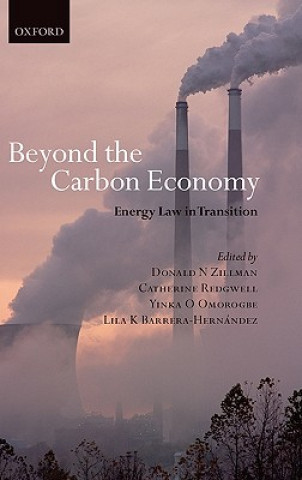
Dostava
Savjetnik za kupnju





Proizvod vam ne odgovara? Nema veze! Možete nam vratiti unutar 30 dana
 Poklon bon
u bilo kojoj vrijednosti
Poklon bon
u bilo kojoj vrijednosti
S poklon bonom ne možete pogriješiti. Za poklon bon primatelj može odabrati bilo što iz naše ponude.
Beyond the Carbon Economy
 Engleski
Engleski
 670 b
670 b
30 dana za povrat kupljenih proizvoda
Moglo bi vas zanimati i


The present energy economy, with its heavy dependence on fossil fuels, is not sustainable over the medium to long term for many interconnected reasons. Climate change is now recognized as posing a serious threat. Energy and resource decisions involving the carbon fuels therefore play a large role in this threat. Fossil fuel reserves may also be running short and many of the major reserves are in politically unstable parts of the world. Yet citizens in nations with rapidly developing economies aspire to the benefits of the modern energy economy. China and India alone have 2.4 billion potential customers for cars, industries, and electrical services. Even so, more than half of the world's citizens still lack access to energy. Decisions involving fossil fuels are therefore a significant part of the development equation. This volume explains how the law can impede or advance the shift to a world energy picture significantly different from that which exists today. It first examines the factors that create the problems of the present carbon economy, including environmental concerns and development goals.It then provides international and regional legal perspectives, examining public international law, regional legal structures, the responses of international legal bodies, and the role of major international nongovernmental actors. The book then moves on to explore sectoral perspectives including the variety of renewable energy sources, new carbon fuels, nuclear power, demand controls, and energy efficiency. Finally, the authors examine how particular States are, could, or should, be adapting legally to the challenges of moving beyond the carbon economy.
Informacije o knjizi
 Engleski
Engleski
Kategorija




 Kako kupovati
Kako kupovati





















